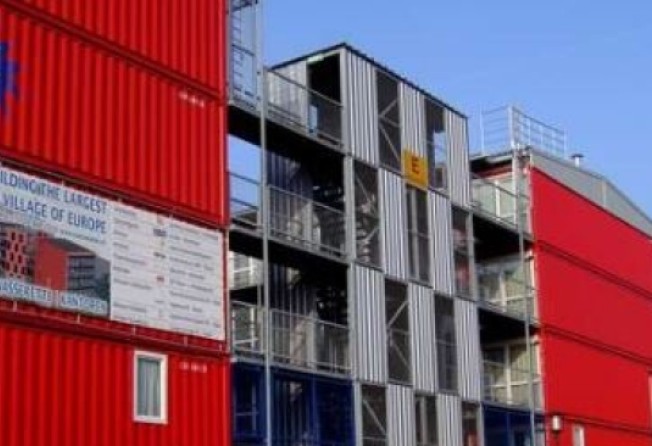Hong Kong must do better on public housing
It’s a sorry state of affairs when a place that prides itself as Asia’s world city is looking at shared units and freight containers as a way of tackling the housing problem

When families unknown to each other need to share a housing unit, when freight containers become living space for people, something is clearly amiss. Ironically, they are already seen as better options for tens of thousands of people living in illegally carved up shoebox cubicles inside run-down tenement blocks and industrial buildings. The sorry state of affairs sits oddly with a place that prides itself as Asia’s world city.
The government and NGOs involved in the container housing study said no decision had yet been made. We trust officials are fully aware of the risks and challenges involved and will examine the feasibility carefully before forming a view. Inhuman as it sounds, the concept has increasingly been adopted overseas, such as in the Netherlands, Australia and Taiwan. Officials are leaving no stone unturned in tackling the city’s housing conundrum.
A less controversial interim measure, to the credit of the new government and the Hong Kong Council of Social Service and other community organisations, will be rolled out by the end of the year. Under the Community Housing Movement, those who are living in poor conditions and have been waiting for rental public housing for three years will be eligible to lease designated private housing units at below-market rent. Each person will be given a minimum living area of seven square metres.
The project only comprises 34 flats initially, rising to 500 eventually. But with as many as 278,000 applications for public housing in the queue at present, the initiative is just a drop in the ocean. Selected households are also likely to share the units, raising concerns over potential conflicts among the tenants.
The government has rightly excluded illegally subdivided units from the scheme. The 300-odd potentially available flats come from 26 landlords, including some private property developers. The units are subject to stringent structural safety and fire risk assessment, with a budget of HK$61.5 million for renovation and maintenance. Hopefully, it will not become a permanent government-sanctioned subdivided housing scheme.
Given the acute shortage of affordable housing, it will not be surprising if there is overwhelming response to the scheme. If a 2015 government survey is any reference, some 41 per cent of the 88,800 households in subdivided flats were waiting for public housing. But the housing project should only be a stopgap measure in any case. An affluent society like Hong Kong can do better than just offering its people shared living units or container housing.